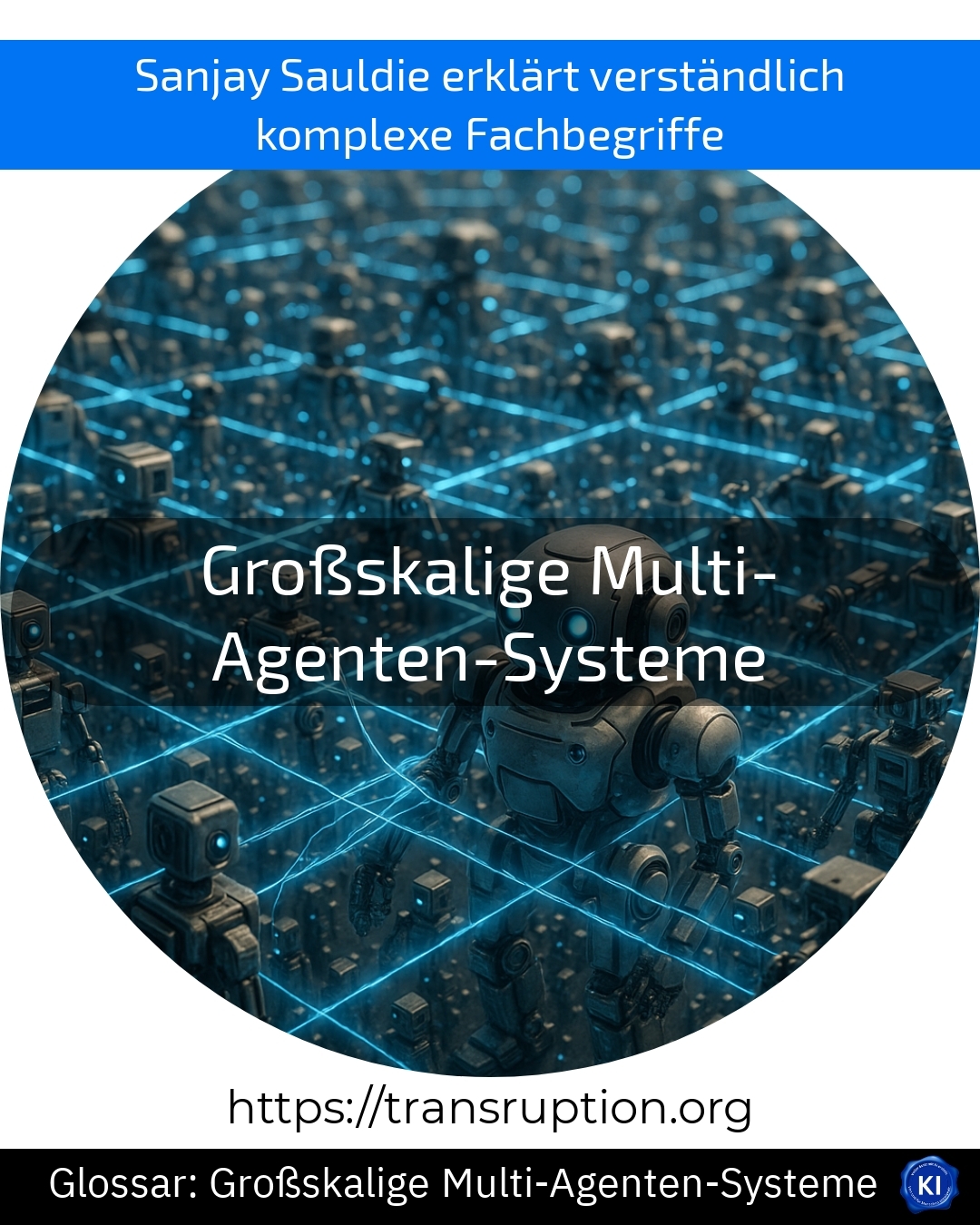Large-scale multi-agent systems are particularly at home in the fields of artificial intelligence, automation and Industry 4.0. The term describes complex computer systems in which many digital „agents“ act and communicate with each other independently. These virtual agents can be programmes, robots or sensors that work together to solve tasks that would be far too complex for individual computers.
A typical example: In a modern factory, hundreds of robots work together to produce cars. Each robot is an agent that receives information, performs tasks and communicates with other robots. The entire system adapts flexibly to changes, for example when new models are built or malfunctions occur.
Large-scale multi-agent systems make industrial processes more efficient and enable a rapid response to new challenges. They are particularly useful when many subtasks need to be coordinated and completed simultaneously. This makes production chains smarter, more flexible and often more cost-effective.
This technology is an important step towards the „smart factory“ and plays a key role in the digitalisation and automation of modern companies.















